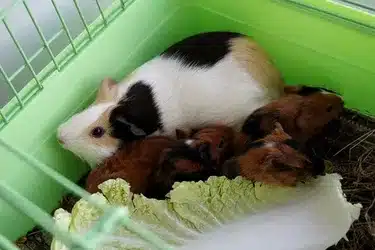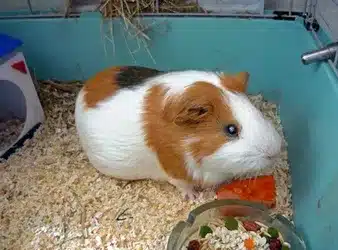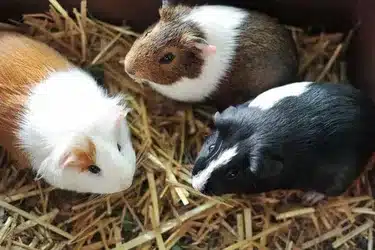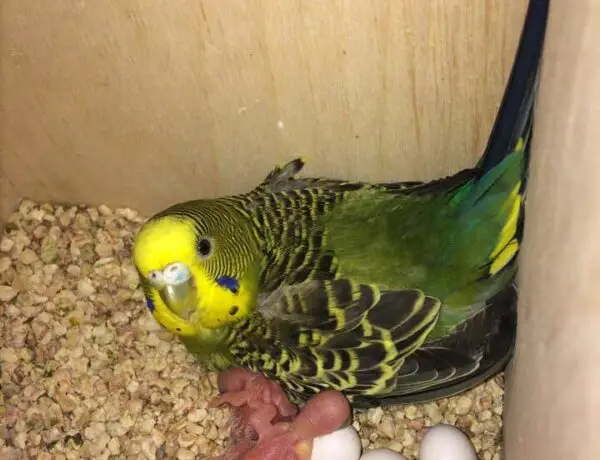Introduction
How To Keep Guinea Pig Cage Clean: Keeping a guinea pig’s cage clean is not only essential for the pet’s health and well-being but also for maintaining a pleasant environment in your home. Guinea pigs are gentle and social creatures that require a clean and hygienic living space to thrive. This guide will walk you through the necessary steps and practices to ensure that your guinea pig’s cage remains clean and comfortable.
From daily tasks like spot cleaning to weekly deep cleanings, we will explore the methods and tools needed to maintain a sanitary and odor-free cage. Additionally, we will discuss the importance of providing fresh bedding, monitoring their living area for any health concerns, and ensuring proper waste disposal.
A clean cage not only enhances your guinea pig’s quality of life but also strengthens the bond between you and your furry companion. By following these guidelines, you can create a safe and enjoyable habitat for your guinea pig while keeping your home fresh and hygienic.

How often should guinea pig cages be cleaned?
In addition to cleaning your guinea pig’s habitat & accessories completely once a week, spot cleaning should be done daily. Spot cleaning can be done by removing soiled litter and bedding with a small food or litter scoop.
Daily Spot Cleaning: Perform daily spot cleaning of your guinea pig’s cage to remove any visible waste, uneaten food, or soiled bedding. This helps maintain a clean and hygienic environment.
Weekly Deep Cleaning: A more thorough cleaning, including changing the bedding and cleaning all cage components, should be done on a weekly basis. Remove your guinea pigs from the cage during this process to ensure their safety.
Monitoring Behavior: Pay attention to your guinea pigs’ behavior and habits. If they are particularly messy eaters or have a tendency to soil their bedding quickly, you may need to adjust your cleaning schedule accordingly.
Assessing Odor: The presence of strong odors in the cage can indicate the need for more frequent cleaning. A clean cage should have minimal odors.
Maintaining Hygiene: Cleanliness is crucial for your guinea pigs’ health. Dirty cages can lead to health problems, so it’s essential to maintain good hygiene.
Health Considerations:
If you notice any signs of illness or discomfort in your guinea pigs, consult a veterinarian promptly. Cleanliness plays a role in preventing health issues, but regular veterinary care is essential for their overall well-being.
How long can guinea pigs go without a clean cage?
A guinea pig’s cage should be thoroughly cleaned on a weekly basis and spot-cleaned every few days. If you don’t enjoy the smell of a dirty cage, consider how your guinea pig—who spends nearly all of their waking hours just inches above their bedding—feels about stinky living quarters.
Short Periods Only: Guinea pigs should not go for extended periods without a clean cage. Their cages should be cleaned regularly to maintain a healthy and hygienic living environment.
Daily Spot Cleaning: Daily spot cleaning is necessary to remove any visible waste, uneaten food, or soiled bedding. Neglecting this routine can lead to odors, pests, and unsanitary conditions within a day or two.
Weekly Deep Cleaning: A more thorough weekly cleaning, including changing the bedding and cleaning all cage components, is essential. Guinea pigs require a clean and fresh living space to thrive, and a week without a deep cleaning can lead to discomfort and health issues.
Monitoring Health and Behavior: Observing your guinea pigs’ behavior and health is crucial. If you notice any signs of illness, discomfort, or stress, it may be necessary to clean the cage more frequently.
Importance of Hygiene: Guinea pigs are sensitive animals, and poor cage hygiene can result in health problems, including respiratory issues and skin irritations. Maintaining cleanliness is essential for their well-being.
Do guinea pigs get happy when you clean their cage?
As pig-slaves, we need to be on optimal cleaning duty. Whilst some piggies love nothing better than sitting in their own filth, I wouldn’t recommend this as a good strategy for long-term happiness. Clean out the cage (or litter tray) every day. Guinea pigs love to see their pig slaves at work.
Improved Living Conditions: Cleaning a guinea pig’s cage provides them with a cleaner and more hygienic environment. Many guinea pigs seem to appreciate the improved living conditions and the absence of odors associated with a clean cage.
Exploration and Play: Guinea pigs are naturally curious and active animals. After a cage cleaning, they may explore and play in their refreshed space, showing signs of happiness and excitement.
Reduced Stress: A clean cage can reduce stress for guinea pigs. They may feel more comfortable and secure in a tidy environment, which can contribute to their overall well-being and contentment.
Bonding Opportunity: Cleaning their cage provides an opportunity for interaction with your guinea pigs. Some guinea pigs may enjoy the attention and interaction they receive during the cleaning process.
Observing Changes in Behavior: Each guinea pig has its own personality, so their reactions to a clean cage may vary. Observing their behavior can help you gauge their individual responses and preferences.
Overall Health and Happiness: A clean cage is essential for the health and happiness of guinea pigs. It reduces the risk of health issues related to poor hygiene and creates a more pleasant living space for them.
How do you clean guinea pig pee?
Once the droppings and urine have been removed, you should use a pet-safe disinfectant. You can use conventional antibacterial sprays so long as you wait a day before reintroducing your guinea pig to the area. You can also use a solution made of equal parts of white vinegar and water.
Immediate Spot Cleaning: Cleaning guinea pig urine should begin with immediate spot cleaning. Use a paper towel or a cloth to absorb the urine while it’s still fresh. This prevents it from soaking into the bedding or cage floor.
Vinegar and Water Solution: For stubborn urine stains or odors, you can prepare a solution of white vinegar and water (1:1 ratio) and gently scrub the affected area with a soft cloth. Vinegar helps neutralize odors and break down urine residue.
Washable Bedding: If you use washable bedding, wash it regularly with a mild detergent. Be sure to rinse it thoroughly to remove all detergent residues, which can be harmful to guinea pigs.
Disposable Bedding: If you use disposable bedding like wood shavings or paper-based products, replace the soiled bedding frequently, ideally on a daily basis. This helps maintain cleanliness and hygiene in the cage.
Check for Health Issues: Frequent urination or changes in urination patterns can be a sign of health issues in guinea pigs. If you notice unusual behavior or excessive urination, consult a veterinarian for a health checkup.
Cage Maintenance: Regularly clean and disinfect the entire cage to prevent urine buildup. This includes removing and washing any soiled cage accessories.
Do guinea pigs prefer dark or light?
They could be up at two in the morning running around with each other, or asleep at eight in the morning and up again an hour later. It’s safe to say that guinea pigs enjoy the dark at least, but we’d even go as far as to say they prefer the dark.
Natural Habitat: Guinea pigs are crepuscular animals, which means they are most active during dawn and dusk. In their natural habitat of the Andes Mountains, they experience a mix of light and dark conditions during these times.
Avoiding Bright Light: Guinea pigs have sensitive eyes and may be uncomfortable in bright, direct sunlight. They tend to avoid overly bright environments.
Preference for Dim Light: In captivity, guinea pigs often prefer dim or indirect lighting. Providing them with a shaded or partially lit area in their enclosure allows them to retreat to a more comfortable environment when needed.
Balance is Key: While guinea pigs may prefer dimmer lighting, complete darkness is not necessary. They benefit from a balanced lighting environment that includes both light and dark areas to mimic their natural behavior.
Individual Variations: Each guinea pig has its own preferences, so it’s important to observe your pets and adjust their living conditions accordingly. Some may be more tolerant of light, while others may seek out darker areas for comfort.
Do guinea pigs poop a lot?
A ‘normal’ guinea pig will produce up to 100 poos a day. This number is naturally lower in older or less mobile guinea pigs. If the number of fecal pellets drops below 50 a day it may be a sign that something is wrong. Reasons for lower numbers of poos can be reduced food intake or slowed gut motility.
Frequency: Guinea pigs are known to have a relatively high frequency of bowel movements compared to some other pets. They typically poop quite regularly throughout the day.
Coprophagy: One unique aspect of guinea pig behavior is coprophagy, which means they eat a special type of feces called “cecotropes.” These soft, nutrient-rich pellets are produced in their cecum and provide essential nutrients, such as B vitamins. This behavior is a normal part of their digestive process.
Healthy Indicator: Regular pooping is a sign of a healthy guinea pig. It indicates that their digestive system is functioning properly, and they are eliminating waste regularly.
Hygiene: While guinea pigs do poop frequently, their droppings are relatively small, dry, and easy to clean. Regular cage cleaning and spot cleaning of soiled bedding help maintain a clean and hygienic living environment.
Observing Changes: Paying attention to any changes in your guinea pig’s poop, such as a sudden increase or a significant change in consistency or color, can be a helpful indicator of their overall health. If you notice any concerning changes, consult a veterinarian.
Does guinea pig pee smell?
Guinea pig pee generally shouldn’t have a strong odor but if the bedding is left too long, it can get unpleasant. And that’s where the problem with smelly cages lies – if the cleaning is left too long, your piggies are literally stinkin’ cute.
Mild Odor: Guinea pig pee typically has a mild odor compared to the urine of some other animals. The smell is usually not overpowering or offensive.
Factors Affecting Odor: Several factors can influence the odor of guinea pig urine. Diet plays a role; a diet high in fresh vegetables may result in slightly stronger-smelling urine. Additionally, the cleanliness of the cage and the type of bedding used can affect odor.
Frequent Urination: Guinea pigs tend to urinate frequently throughout the day and night. Their urine is usually more diluted than that of some other pets, which can contribute to a milder smell.
Proper Cage Maintenance: Maintaining a clean cage is crucial for managing any urine odor. Regular spot cleaning, changing soiled bedding, and weekly cage cleanings help prevent any buildup of odors.
Monitoring Health: Any significant change in the smell of your guinea pig’s urine should be monitored, as it can sometimes indicate underlying health issues. If you notice a sudden, strong, or unusual odor, consult a veterinarian for a health checkup.
Do indoor guinea pigs smell?
In a nutshell, guinea pigs shouldn’t smell. If they are giving off an unpleasant odor, it’s usually a sign that the cage isn’t clean, their diet is wrong, they’re sick, or they’re struggling to groom themselves. Also, boars may smell more than sows because of an oily buildup around the grease gland.
Minimal Odor: Indoor guinea pigs are not known for emitting strong or offensive odors. Their natural scent is relatively mild compared to some other pets.
Proper Cage Maintenance: The key to ensuring that indoor guinea pigs do not produce noticeable odors lies in proper cage maintenance. Regular cleaning, including spot cleaning of soiled bedding and a weekly deep cleaning of the cage, is essential to keep their living area clean and odor-free.
Fresh Bedding: Using fresh and absorbent bedding materials, such as hay or wood shavings, can help control any potential odors associated with their urine.
Ventilation: Adequate ventilation in the room where the guinea pigs are housed helps disperse any minor odors that may arise.
Health Considerations: Changes in odor can sometimes indicate health issues in guinea pigs. It’s important to monitor their health and consult a veterinarian if you notice any significant changes in their scent or behavior.

Conclusion
Maintaining a clean guinea pig cage is vital for the well-being of your beloved pets and the cleanliness of your home. Regular cleaning routines, such as daily spot cleaning and weekly deep cleaning, play a significant role in providing a healthy and hygienic environment for guinea pigs to thrive.
Remember to prioritize fresh bedding, consistent monitoring of your pets’ health, and proper waste disposal to ensure a clean and odor-free cage. Cleanliness not only promotes the physical health of your guinea pigs but also enhances the bond between you and your small companions.
By following these guidelines and maintaining a clean living space for your guinea pigs, you can enjoy the delightful company of these gentle creatures while providing them with a safe and comfortable home.



No Comments